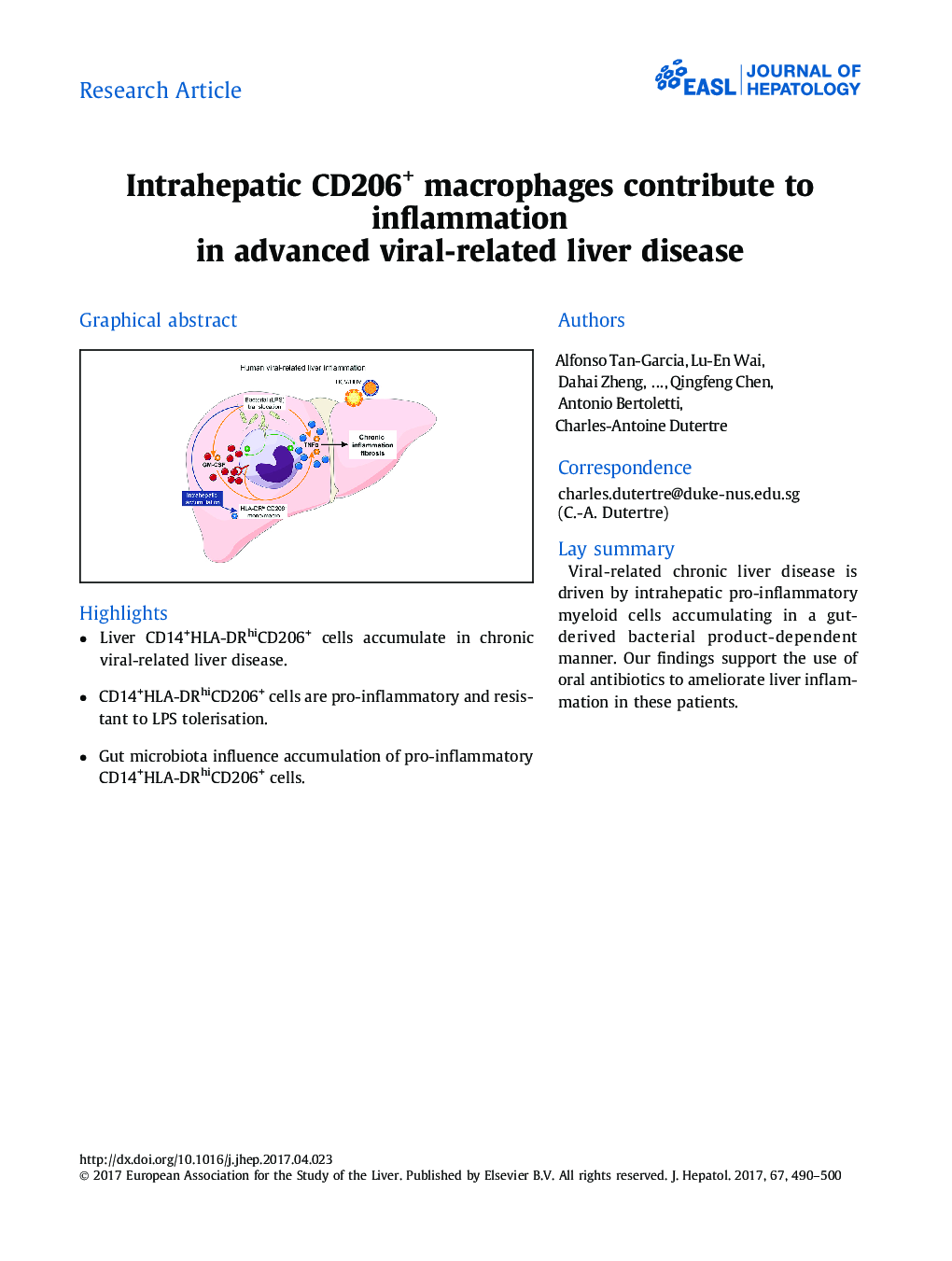| Article ID | Journal | Published Year | Pages | File Type |
|---|---|---|---|---|
| 5660393 | Journal of Hepatology | 2017 | 12 Pages |
â¢Liver CD14+HLA-DRhiCD206+ cells accumulate in chronic viral-related liver disease.â¢CD14+HLA-DRhiCD206+ cells are pro-inflammatory and resistant to LPS tolerisation.â¢Gut microbiota influence accumulation of pro-inflammatory CD14+HLA-DRhiCD206+ cells.
Background & AimsLiver inflammation is key in the progression of chronic viral hepatitis to cirrhosis and hepatocellular carcinoma. The magnitude of viral replication and the specific anti-viral immune responses should govern the degree of inflammation, but a direct correlation is not consistently found in chronic viral hepatitis patients. We aim to better define the mechanisms that contribute to chronic liver inflammation.MethodsIntrahepatic CD14+ myeloid cells from healthy donors (n = 19) and patients with viral-related liver cirrhosis (HBV, HBV/HDV or HCV; n = 15) were subjected to detailed phenotypic, molecular and functional characterisation.ResultsUnsupervised analysis of multi-parametric data showed that liver disease was associated with the intrahepatic expansion of activated myeloid cells mainly composed of pro-inflammatory CD14+HLA-DRhiCD206+ cells, which spontaneously produced TNFα and GM-CSF. These cells only showed heightened pro-inflammatory responses to bacterial TLR agonists and were more refractory to endotoxin-induced tolerance. A liver-specific enrichment of CD14+HLA-DRhiCD206+ cells was also detected in a humanised mouse model of liver inflammation. This accumulation was abrogated following oral antibiotic treatment, suggesting a direct involvement of translocated gut-derived microbial products in liver injury.ConclusionsViral-related chronic liver inflammation is driven by the interplay between non-endotoxin-tolerant pro-inflammatory CD14+HLA-DRhiCD206+ myeloid cells and translocated bacterial products. Deciphering this mechanism paves the way for the development of therapeutic strategies specifically targeting CD206+ myeloid cells in viral-related liver disease patients.Lay summary: Viral-related chronic liver disease is driven by intrahepatic pro-inflammatory myeloid cells accumulating in a gut-derived bacterial product-dependent manner. Our findings support the use of oral antibiotics to ameliorate liver inflammation in these patients.
Graphical abstractDownload high-res image (138KB)Download full-size image
